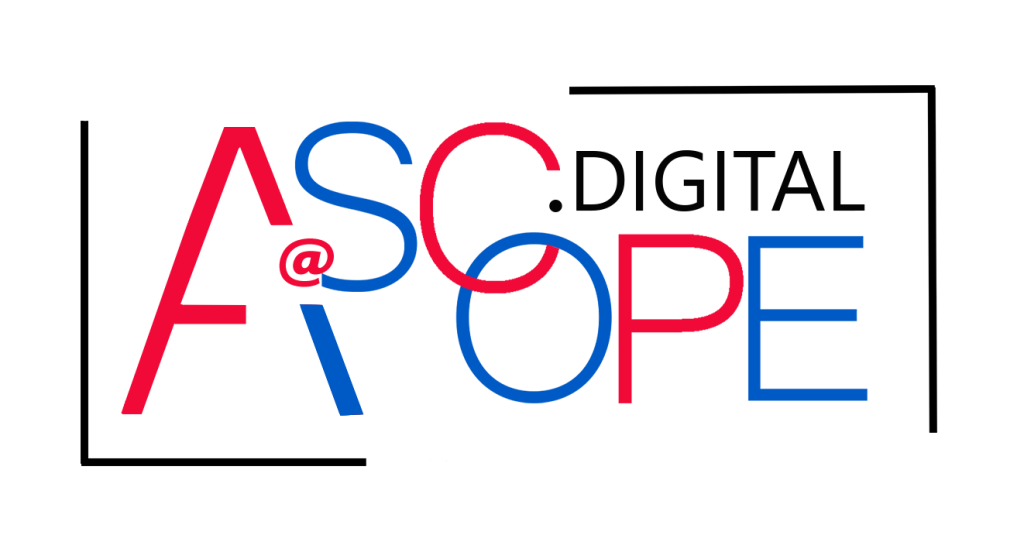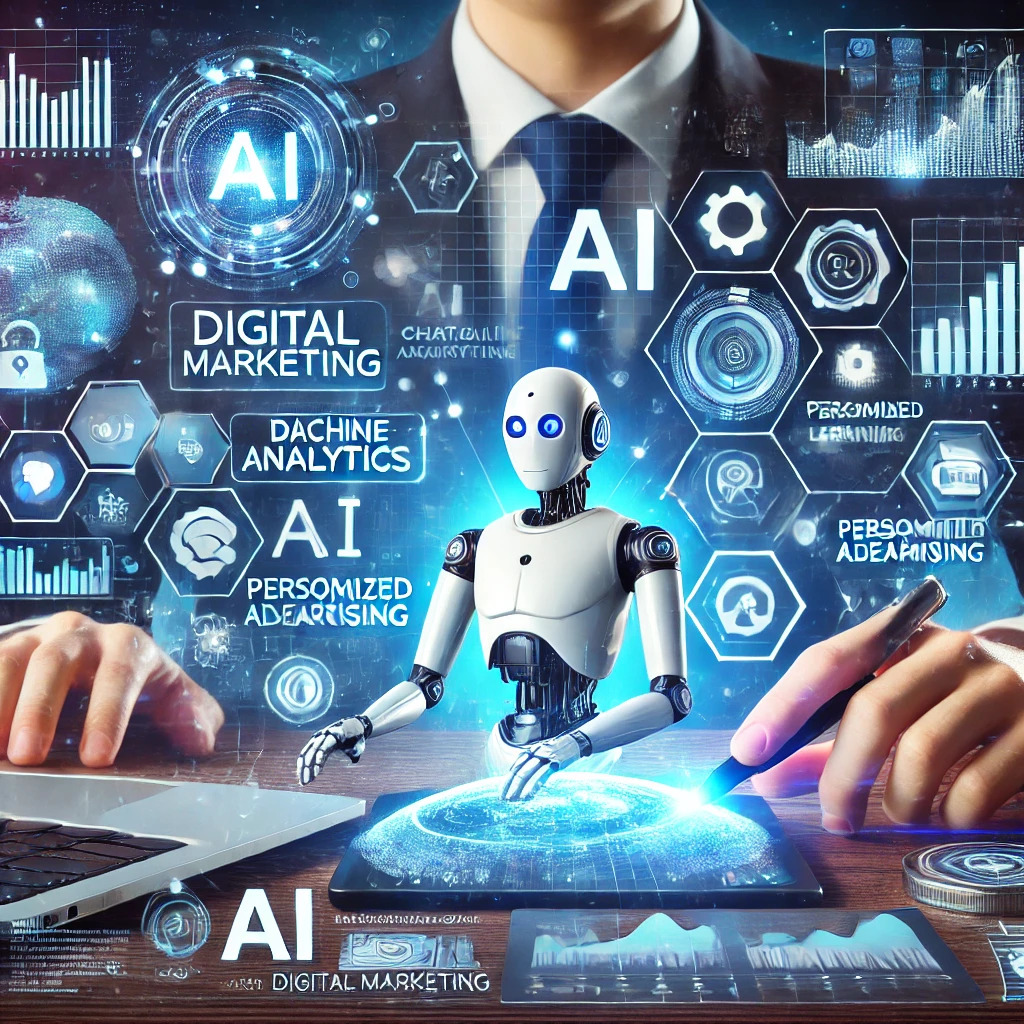
The rapid advancements in AI in digital marketing have brought about profound changes in how businesses interact with customers. Over the years, AI has evolved from a peripheral technology to a central pillar of digital marketing strategies, enabling companies to reach their target audiences in more personalized and efficient ways. As AI continues to develop, its role in shaping the future of marketing grows increasingly significant. This article delves into the evolution of AI in digital marketing, exploring its journey from early implementations to the advanced solutions we see today.
The Evolution of AI in Digital Marketing: Past to Present
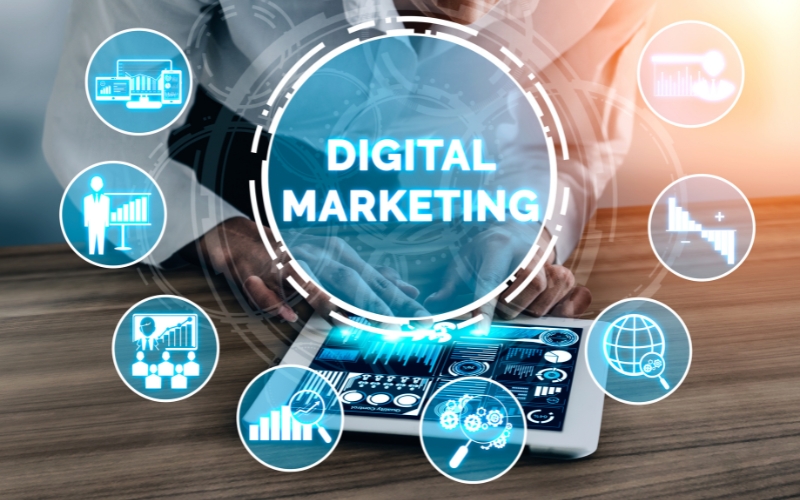
AI in digital marketing has undergone significant transformation in the last decade, evolving from a niche technology to a core component of marketing strategies. Initially, the use of AI was primarily experimental, with early applications focusing on automating simple tasks such as email marketing and data analysis. Over time, advancements in machine learning, deep learning, and natural language processing (NLP) have unlocked more sophisticated AI-driven solutions that are now essential for marketers.
In the early 2010s, AI in digital marketing was largely used for basic analytics, helping businesses gather insights from large datasets. AI-powered tools began offering predictive analytics, allowing marketers to forecast consumer behavior based on past interactions. These tools provided invaluable insights for audience segmentation and personalized marketing, but the scope of AI’s impact was limited by the computing power and available algorithms at the time.
By the mid-2010s, AI in digital marketing started to gain more traction with the rise of chatbots and automated customer service tools. These AI-driven solutions revolutionized customer engagement by enabling brands to offer 24/7 support, instantly respond to queries, and personalize interactions. At this point, AI technology began enhancing the customer experience in real time, transforming how businesses interacted with their audiences.
Fast forward to the late 2010s and early 2020s, the integration of AI in digital marketing became more advanced and multifaceted. Machine learning algorithms were used to optimize ad targeting and bidding strategies, improving ROI on digital ads. AI also started to play a major role in content creation, with tools capable of generating personalized content and even automating the entire process of ad copywriting. The ability to analyze vast amounts of data in real time allowed marketers to optimize campaigns on the fly, adjusting strategies based on performance metrics and audience behavior.
Today, AI in digital marketing is at the forefront of innovation, and its capabilities continue to expand. Machine learning models and advanced predictive analytics are not only used for campaign optimization but also for content personalization, customer journey mapping, and influencer marketing. Brands are now able to use AI to automate workflows, personalize experiences, and predict trends, giving them a competitive edge in an increasingly data-driven world.
As we look toward 2025, AI in digital marketing is expected to become even more powerful, offering marketers new ways to engage with customers and stay ahead of the competition. From hyper-personalization to advanced automation, AI is shaping the future of digital marketing and will continue to drive industry growth.
AI-Powered Personalization: Creating Tailored Customer Experiences
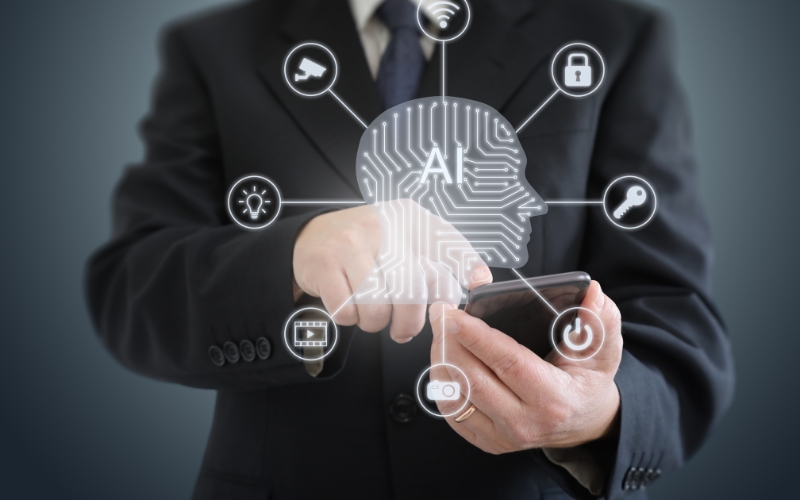
AI in digital marketing has revolutionized how brands interact with consumers, particularly through the power of AI-driven personalization. In an era where customers demand highly relevant, engaging, and individualized experiences, AI has become the driving force behind personalized marketing strategies. With the help of advanced machine learning algorithms and predictive analytics, businesses can now deliver content and offers that resonate with each user on a deeper level.
AI-powered personalization begins with the collection and analysis of vast amounts of consumer data. Through tools that harness the capabilities of AI, brands can gain real-time insights into customer behavior, preferences, and browsing patterns. Machine learning algorithms analyze this data to segment audiences and predict the most relevant content for each individual, thus ensuring that every customer is targeted with personalized messages that match their interests.
One of the key advancements in AI-driven personalization is predictive analytics, which allows brands to forecast what customers are likely to want next. By studying historical data and leveraging AI in digital marketing, businesses can predict purchasing behavior, optimize product recommendations, and tailor messaging based on anticipated customer actions. For example, e-commerce websites use AI to recommend products based on previous purchases, ensuring that customers are presented with relevant items that increase the likelihood of a sale.
Beyond just product recommendations, AI in digital marketing also enables more personalized content experiences. Brands can use AI to dynamically alter website content, emails, and advertisements to align with the specific preferences of individual users. This could mean adjusting the messaging, tone, or even the type of content a user sees based on their previous interactions with the brand. By doing so, AI helps create a seamless and cohesive experience across various touchpoints, whether on a website, in an email campaign, or through social media.
The ability of AI to offer hyper-targeted personalization is not only enhancing user engagement but also improving customer loyalty. With increasingly tailored interactions, customers feel valued and understood, which builds trust and strengthens brand relationships. As AI continues to evolve, the possibilities for even more advanced personalization are endless. From chatbots offering real-time, contextually relevant recommendations to AI tools that predict a customer’s next purchase, the future of AI in digital marketing is all about delivering increasingly personalized and relevant experiences at scale.
The Role of Chatbots and Conversational AI in Customer Engagement
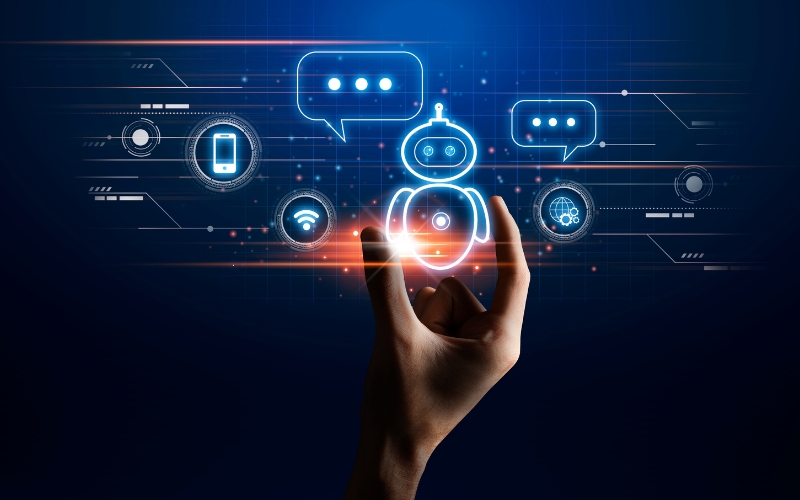
AI in digital marketing has significantly impacted customer engagement, particularly through the use of chatbots and conversational AI platforms. These technologies are transforming how businesses interact with customers, offering a more dynamic, personalized, and efficient way to manage communication. As consumer expectations for fast, seamless interactions continue to rise, chatbots and conversational AI are becoming integral tools in the digital marketing toolkit.
Chatbots, powered by AI, have revolutionized customer service by providing real-time, automated assistance. They allow businesses to offer 24/7 support, ensuring customers receive immediate responses regardless of the time of day. By leveraging natural language processing (NLP) and machine learning, chatbots are able to understand and respond to a wide range of customer inquiries, from simple questions to more complex issues. This enables brands to improve response times and reduce customer wait times, ultimately enhancing the customer experience.
Conversational AI takes chatbot capabilities to the next level by offering more advanced features, such as contextual understanding and personalization. These platforms don’t just respond to predefined queries; they learn from past interactions to provide more relevant and tailored responses in future conversations. For example, a conversational AI system might recommend products based on previous customer purchases or suggest solutions to issues based on prior customer service interactions. This level of personalization ensures customers feel heard and valued, improving overall satisfaction and engagement.
AI in digital marketing also enables businesses to integrate chatbots and conversational AI across multiple channels, such as websites, social media, and messaging apps. This omnichannel approach allows brands to maintain consistent communication with customers no matter where they choose to interact. Whether a customer initiates a conversation through Facebook Messenger or a company’s website chat feature, the integration of AI ensures they receive the same high-quality service across all platforms.
Looking ahead to 2025, the role of AI in digital marketing, particularly through chatbots and conversational AI, is expected to expand even further. These technologies will become more sophisticated, with AI systems capable of handling even more complex customer queries and offering highly personalized experiences. Integration with other AI-driven marketing tools will allow brands to deliver seamless customer journeys, from initial inquiries to post-purchase support.
AI and Automation in Campaign Optimization: Boosting Efficiency and ROI
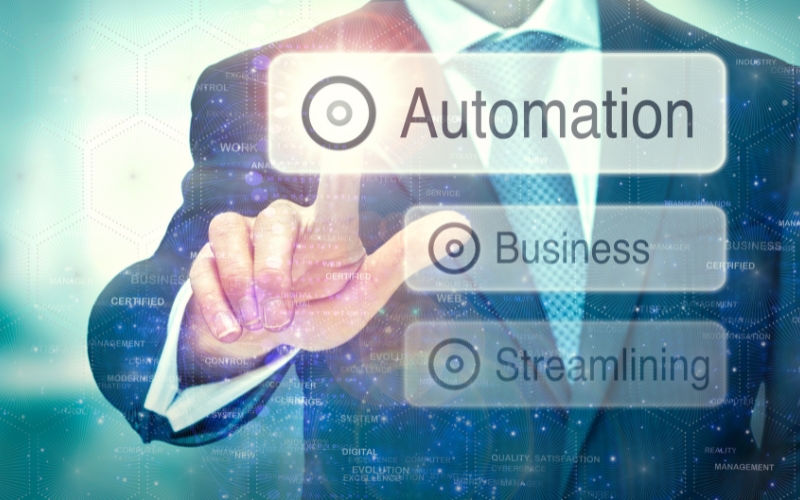
AI in digital marketing has fundamentally changed the way digital campaigns are optimized, helping businesses achieve better results with increased efficiency and higher return on investment (ROI). By incorporating AI and automation into their strategies, marketers are now able to enhance targeting precision, streamline operations, and continuously improve campaign performance—all while reducing manual labor and human error.
One of the most significant ways AI is transforming campaign optimization is through automated bidding. In traditional digital advertising, marketers manually set bids for their ads, which can be time-consuming and inefficient. AI-powered automated bidding, on the other hand, uses machine learning to adjust bids in real-time based on various factors like user behavior, market conditions, and ad performance. This ensures that businesses get the best possible value for their ad spend without needing to constantly monitor and adjust their bids, ultimately boosting ROI.
Another area where AI in digital marketing excels is ad targeting. With the ability to analyze vast amounts of customer data, AI can identify patterns and insights that help marketers better understand their audience. AI-driven tools allow for hyper-targeted ad campaigns, where businesses can reach the right people at the right time with tailored messaging. Whether it’s segmenting audiences based on demographics, interests, or past behavior, AI ensures that ads are shown to the individuals most likely to engage, increasing conversion rates and minimizing wasted ad spend.
Automation also plays a key role in optimizing campaigns by enabling marketers to quickly respond to data changes and adjust strategies accordingly. With AI in digital marketing, campaigns can be automatically optimized based on real-time metrics such as click-through rates (CTR), bounce rates, and customer engagement. By automating these adjustments, businesses can run campaigns that are always aligned with their goals, delivering the best possible results without the need for constant oversight.
Beyond targeting and bidding, AI also contributes to content optimization. AI tools can analyze which types of content resonate most with audiences and adjust messaging, images, and formats accordingly. Whether it’s tweaking ad copy, changing call-to-action buttons, or adjusting landing page designs, AI helps marketers fine-tune every aspect of their campaign for maximum impact.
The Ethical Considerations and Challenges of AI in Marketing
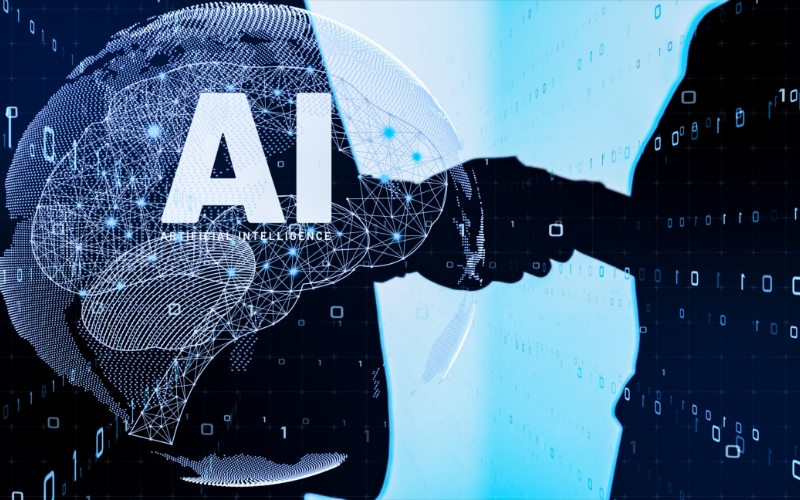
As AI in digital marketing continues to shape the way businesses engage with customers, ethical concerns have become an increasingly important consideration. While AI offers tremendous benefits, including improved personalization, automation, and campaign optimization, it also brings forward challenges related to privacy, transparency, and bias that need to be addressed thoughtfully to ensure responsible use.
One of the primary ethical concerns surrounding AI in digital marketing is privacy. With the vast amount of personal data AI systems analyze to deliver targeted ads and personalized content, there is a risk of violating consumer privacy. AI tools often rely on customer data such as browsing behavior, location, purchase history, and demographic information to craft tailored marketing campaigns. While this enables more relevant experiences for users, it can also lead to data misuse or unauthorized access. Companies must ensure they comply with privacy regulations like the General Data Protection Regulation (GDPR) and inform consumers about how their data is collected, stored, and used. Protecting consumer privacy should be a priority, and marketers need to adopt robust data security practices to safeguard sensitive information.
Another ethical consideration is transparency in AI decision-making. AI systems in digital marketing often operate as “black boxes,” meaning they make decisions based on complex algorithms that are not easily understood by humans. This lack of transparency can raise concerns about how and why certain decisions, such as ad targeting or content recommendations, are made. To address this challenge, marketers should prioritize explainability and provide consumers with more insight into how AI systems work. By adopting transparent practices and offering explanations for AI-driven decisions, businesses can build trust and alleviate concerns regarding the “mystery” of automated systems.
Additionally, AI in digital marketing poses the risk of perpetuating bias. AI algorithms are trained on historical data, and if that data reflects societal biases—whether related to gender, race, or socio-economic status—the AI system may inadvertently reproduce those biases in its decisions. For instance, biased ad targeting could result in certain groups being excluded from job opportunities or housing offers. To mitigate bias, marketers should ensure that the data used to train AI systems is diverse, representative, and free from discrimination. Regular audits and testing of AI models are essential to identify and eliminate biases that could negatively impact consumers.
Conclusion:
As we look ahead to 2025, AI in digital marketing will continue to drive innovation across the industry. With new advancements in machine learning, data analytics, and automation, businesses will be able to create more personalized experiences for their customers. For further insights into the future of AI and its applications, check out this comprehensive guide on AI in marketing by Digital Marketing Institute.
AI in digital marketing has come a long way, and its impact on the industry is undeniable. From improving personalization to optimizing campaigns and customer engagement, AI technologies have enabled marketers to craft more effective strategies and achieve higher ROI. As we look toward the future, the potential for AI to further enhance digital marketing is immense. By staying ahead of these trends, businesses can harness the power of AI to create tailored experiences, optimize their marketing efforts, and ultimately drive greater success in an increasingly data-driven world.
For more details or to discuss your specific Digital Marketing services, visit our Digital Marketing Services page.
